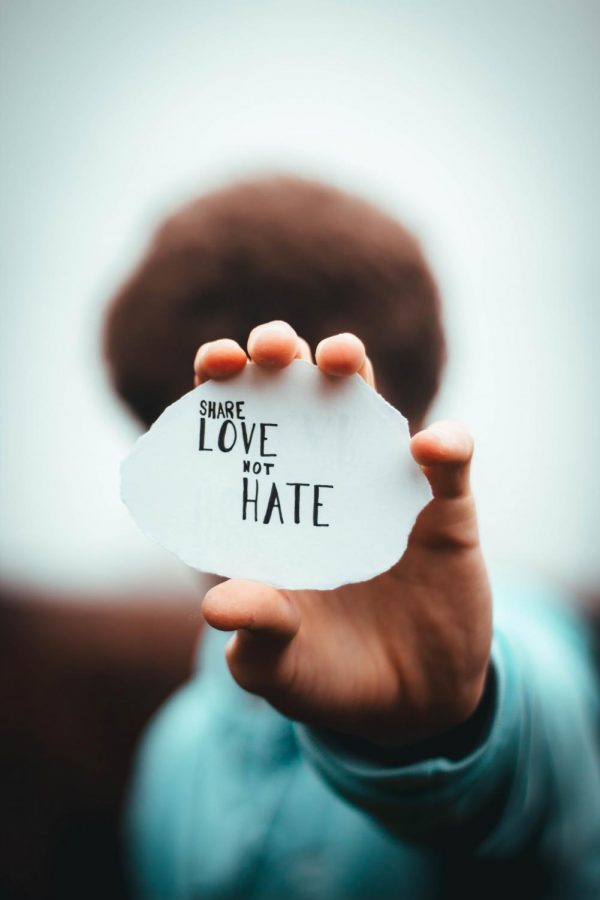What is hate crime? Do your part to stop it.
Think about your actions before doing them. End hate crime.
A hate crime is a crime committed against a person based on prejudiced thoughts or ideas pertaining to the person’s gender, race, ethnicity, religion, age or sexuality. People have been committing hate crimes for thousands of years, there were hate crimes committed in the U.S. before it even became a country, but the first law against hate crimes was only created in 1968.
It was a statute signed off by the President Lyndon Johnson. That statute made it illegal to commit violent hate crimes against people. There were more laws passed to prevent hate crimes in 1996, 1998, and 2009. The law signed by President Barack Obama in 2009 was important because it explicitly defined and expanded what a hate crime is, making it easier for victims to receive justice. Not only that, but it also made all hate crimes under federal jurisdiction rather than state jurisdiction, making it easier to avoid bias and injustice. This means that the Federal Bureau of Investigations (FBI) and federal courts are meant to deal with these cases, keeping treatment and punishment the same around the county (Laws).
According to the U.S. Department of Justice 2018 statistics, an overwhelming 59.6% of reported hate crimes are based on a person’s ethnicity or race. The majority of these crimes are against Black Americans. The second most common is crimes committed against a person due to their religious beliefs (Statistics).
In hate crimes, the offender is most commonly White or of European descent. Hate crimes are extremely serious and can lead to severe punishment. There are both criminal penalties and civil remedies for hate crimes. Depending on the severity of the crime, most offenders are fined and some spend more than one year in prison. Under federal law the offender may spend 10 years to life in prison and, if severe enough, one can receive the death penalty.
Hate crimes are a felony, meaning the offender would become a convicted felon. Felons lose the right to vote, to serve on a jury, to own firearms, to travel abroad, and to parental rights (if any). After being convicted of a felon like a hate crime, individuals may face great difficulty finding employment. Civil remedies means the victim can sue the criminal in civil court.
As stated by CNN, the FBI’s training manual states and helps with identifying the four most common reasons why a person would commit such a crime:
1. For thrill seeking. People who commit the crime are typically bored and intoxicated young men who prey on those that are impuissant to these crimes caused by their race, ethnicity, gender, age, sexuality, or religion. They think their crime doesn’t matter or should be celebrated.
2. For defense. People who commit the crime justify them as “self-defense” or as defending their domain.
3. For retaliation. People who commit these hate crimes are doing it as acts of revenge. It could be because of personal reasons or revenge for other hate crimes or terrorism.
4. As crusaders. People who commit these hate crimes are typically the most dangerous. “They are committed…often for a racial or religious cause. Their mission: total war against members of a rival race or religion. They are often linked to groups that share their racist views” Daniel Burke from CNN writes.



